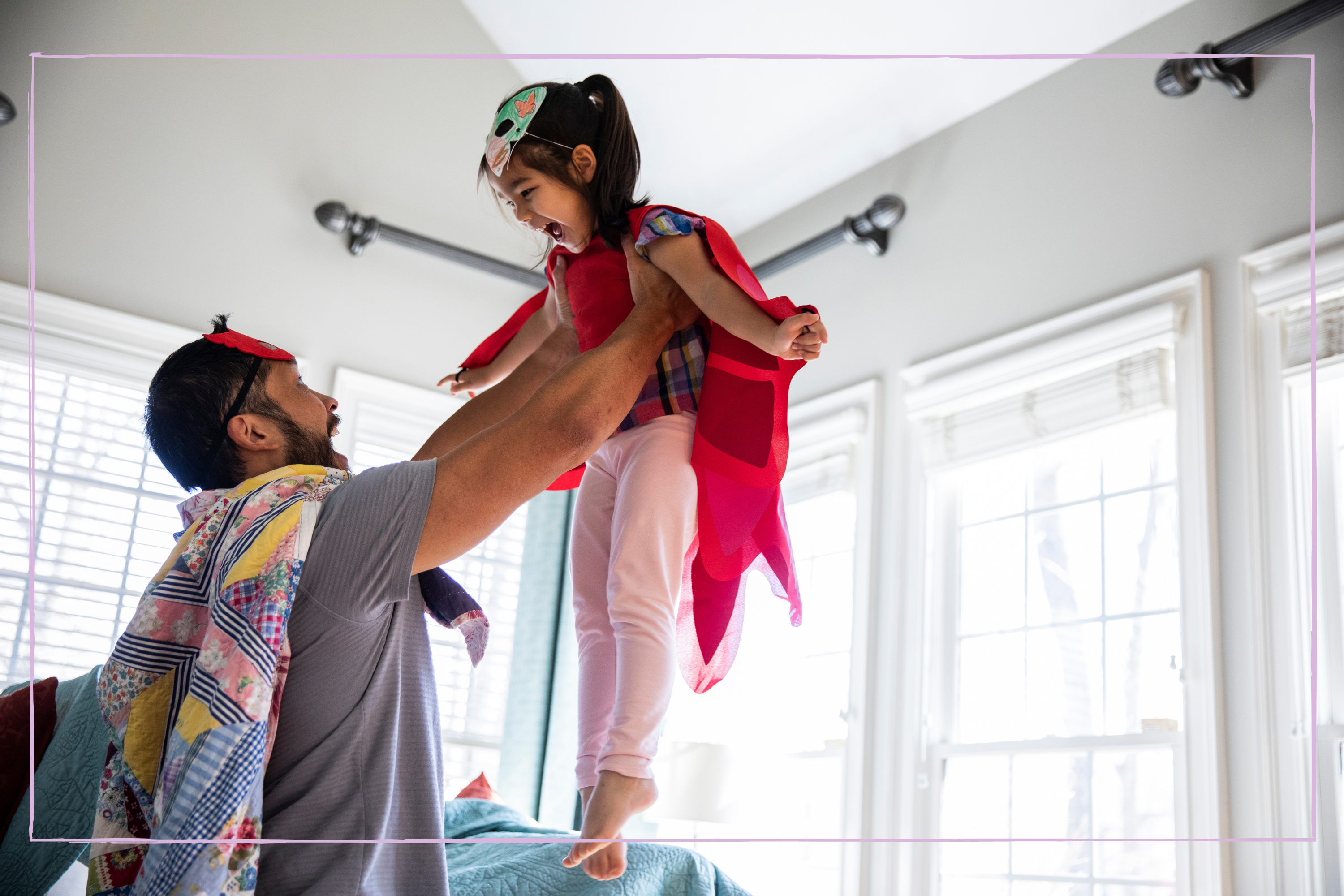‘It’s okay to not like playing’ – a parenting psychologist reveals 3 reasons why playing with your kid feels like a chore
“Being silly actually requires a lot of vulnerability”


Parenting advice, hot topics, best buys and family finance tips delivered straight to your inbox.
You are now subscribed
Your newsletter sign-up was successful
If playing with Barbies and Slyvanian families feels like a chore, you’re not alone.
It takes a lot of strength to openly admit ‘I hate playing with my kid’ and, as a new parent, you probably think you wouldn't need a handbook on how to play with a newborn – it just comes naturally, right? Well, not always. As with a lot of parenting hurdles, you’re expected to just ‘know’ how to play with your child (and find it as fun as them), but if you don’t enjoy playing pretend, a parenting psychologist is here to put your mind at ease.
Dr Becky Kennedy is back with another more-than-helpful explainer on why you might not like playing with your kid. In the Instagram video, she reveals three logical reasons why you feel this way – and they all make so much sense. In fact, there are a lot of parents who don’t feel playful, get distracted with other things when they’re supposed to be engaged or even dread playing with their kid.
3 reasons why you might not like playing with your kid (even though you’re a good parent)
A post shared by Dr. Becky Kennedy | Parenting
A photo posted by drbeckyatgoodinside on
- Your parents didn't play with you: If your mum or dad didn't play with you when you were younger, it's bound to affect the way you interact with your child. Dr Becky says: "The way our parents interacted with us becomes the unconscious model of how we think about interacting with our kid, and so if you did not have a parent who got on the floor and who played with you, it makes sense that it feels awkward to play with your kid because it’s new."
- You're in productivity mode: As parents, we never fully switch off, so it's no wonder your brain is reeling with other things you could be doing, like cleaning the house or getting dinner on: "We’re always thinking what can we accomplish; what can I order; what can I clean up, what can I do around my house, and so play feels a little frivolous, but just remind yourself play is how kids learn, play is important, play is connecting and in all those ways play is productive," Dr Becky assures.
- It's not easy being silly: We'll say what you're probably thinking: playing games can be repetitive and boring, and when you're exhausted and burned out with the mental load, getting into character for your child's entertainment takes a lot of strength. Dr Becky explains: "Being silly actually requires a lot of vulnerability and being vulnerable requires a lot of bravery, so if being silly maybe barking like a dog or playing pretend feels uncomfortable remind yourself you’re being brave every moment you try it."
So many of you felt seen and heard by Dr Becky's reasons, with one user adding their own: "I think there are other reasons, too. I work full time. I’m exhausted. My brain literally has nothing left in the tank to play creatively."
Another comment that received over 100 likes read: "I think if we can engage in play for very small amounts of time (I’m talking 10 minutes in the timer), then engage in other meaningful activities like cooking, gardening, building, etc that we can tolerate for much longer, our kids can get a really well rounded experience of present, engaged time with their caregivers!".
So there you have it – if you're feeling guilty for not wanting to play with your kid, you really shouldn't.
Learning how to like play isn't easy, so we've looked into sensory play and its benefits. If you need some inspiration, these best toys for 5-year-olds will help in the entertainment department.
Parenting advice, hot topics, best buys and family finance tips delivered straight to your inbox.

From building healthy family relationships to self-care tips for mums and parenting trends - Daniella also covers postnatal workouts and exercises for kids. After gaining a Print Journalism BA Hons degree and NCTJ Diploma in Journalism at Nottingham Trent University, Daniella started writing for Health & Wellbeing and co-hosted the Walk to Wellbeing podcast. She has also written for Stylist, Natural Health, The Sun UK and Fit & Well. In her free time, Daniella loves to travel, try out new fitness classes and cook for family and friends.